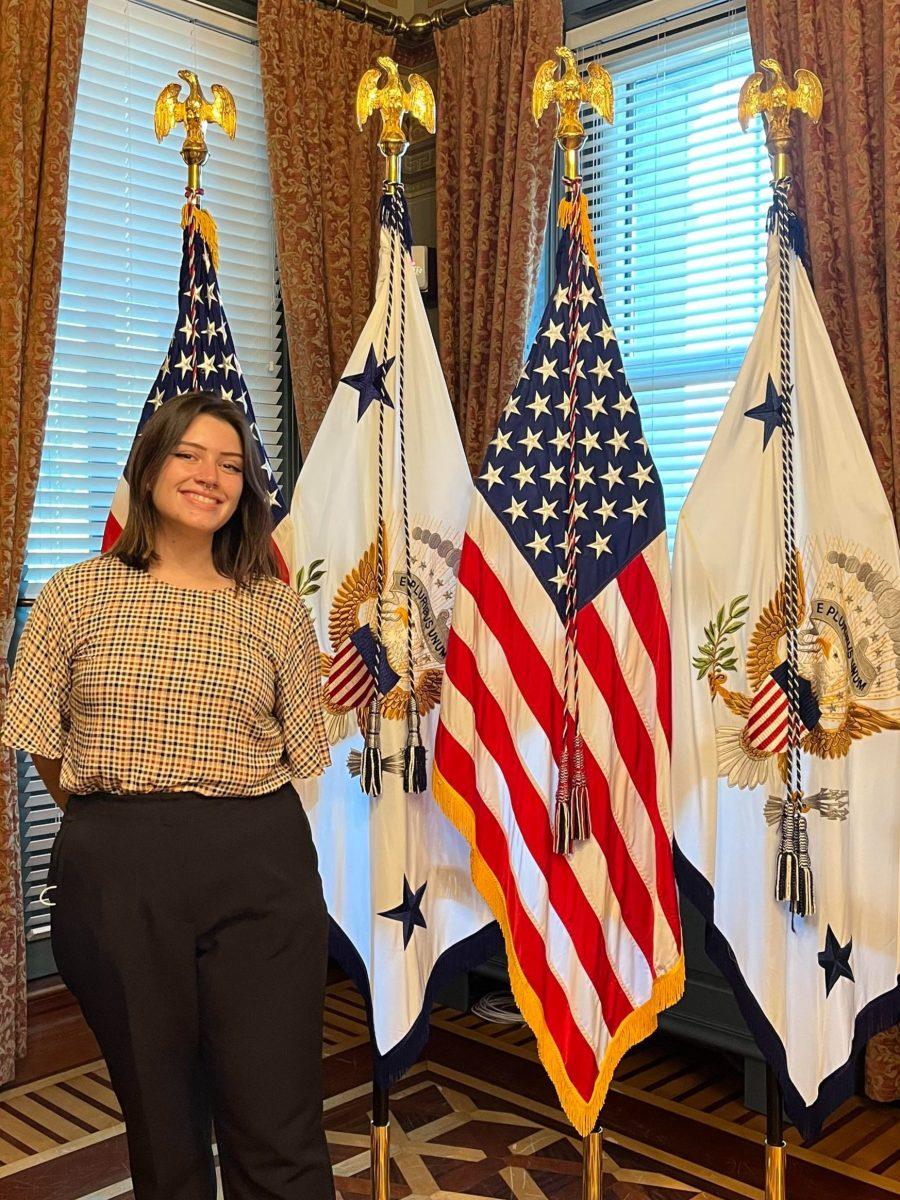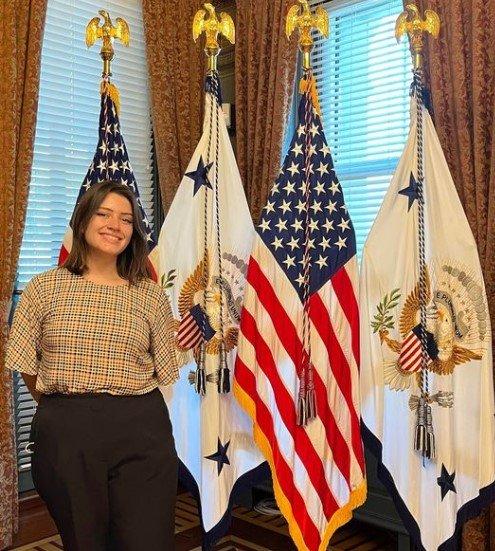Sonoma State University undergraduate senior, Jessica Valdez, was one of about 75 students from colleges and universities across 33 states who were nominated to participate in a roundtable discussion about reproductive rights with Vice President Kamala Harris at the White House on Oct. 14.
This unique opportunity allowed Valdez to voice her opinion on the United States Supreme Court decision in Dobbs v. Jackson Women’s Health Organization, which overturned Roe v. Wade, and eliminated the constitutional right to an abortion.
As a Chicano and Latino studies major with a minor in history, Valdez is no stranger to recognizing discrimination and advocating for the rights of marginalized groups. Since 2019, she’s been an active member of The PUERTA Project, or Preparing Underrepresented Educators to Realize their Teaching Ambitions, which aims to increase the number of Latinx teachers working in K-12 public schools. She’s also an advocate for SSU’s Disability Services for Students, and engages in philanthropic work to help children with arthritis through her sorority, Alpha Omicron Pi, making her an ideal candidate to represent the University on a national stage.
In an interview for SSU News, the first-generation college student explained why reproductive health care is such an important topic to her following the reversal of Roe. Valdez said, “It’s very terrifying when someone doesn’t have control over their own body, and taking abortion rights away means people are no longer in control of their own bodies. Simple as that.”
She said the event included a meeting between the students and the American Council on Education, as well as representatives from Planned Parenthood, before culminating with a conversation with the Vice President.
According to an official readout of the event from The White House website, “The student leaders highlighted how young people are mobilizing to oppose restrictive abortion laws, and how these laws are creating confusion for individuals seeking reproductive health services.” The intersection of attacks on reproductive rights with those on LGBTQI+ and voting rights were also discussed.
Paige Berendsen, a fourth year business administration major and friend of Valdez, shared her thoughts on the White House visit. “I think having Jessica represent a small school like SSU is amazing! It’s incredible for people to see the outstanding students we have here, and that even a small school can do big things!” Berendsen said.
Describing the intentions of the discussion, Valdez said, “Our overall goal was to use the opportunity of meeting as a group to reinforce and create networks so that when we go back to our respective campuses we can continue to advocate for these things and join together for united strategies.” One of the ways she hopes to do this is through eventually establishing a Planned Parenthood Generation Action chapter at SSU. “I feel that will be an effective way for SSU to get more connected with other college campus communities,” she added.
Like many Americans, Valdez is also worried about the potential outcomes of future court rulings. “The message being sent by the Supreme Court taking away abortion rights is that this is not the end. This is the beginning. And we need to organize and take action to take control of our basic rights.”
With the pivotal November midterm elections fast approaching, and the 2024 election looming, the importance of voter registration was something the Vice President also highlighted. Veda Dean, a third year communications and media studies major, cited the lack of political resources on campus as a potential cause for concern ahead of the elections, saying, “I also haven’t seen much information about the elections in general around campus. How will first time voters know how to start voting and what they’re voting for?”
Valdez said this problem was addressed. “There was one point where Vice President Harris was asking our group of student leaders what we felt was the most effective way for us to communicate with our generation. Of course, we emphasized use of social media – but we also felt that it’s important to not take for granted that people know about the issue of abortion rights.” She said educating students on the issue should be done in-person as well as online, through methods like tabling with flyers and stickers, and organizing marches on campus.
After completing her degree next year, she hopes to pursue a career working at a college, with a focus on making higher education accessible to more people through continued involvement in programs that promote diversity, equity and inclusion.
COURTESY // news.sonoma.edu
Jessica Valdez represented SSU as one of 75 students who were nominated to participate in a roundtable discussion about reproductive rights with Vice President Kamala Harris at the White House.




































